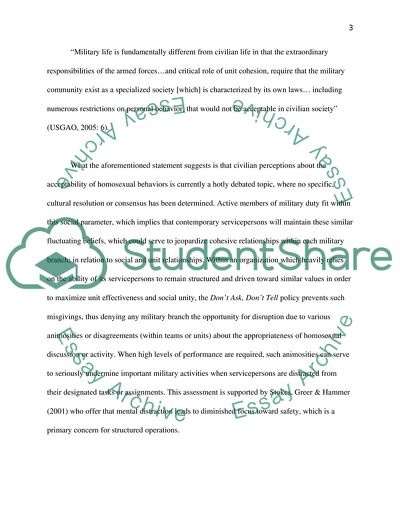Cite this document
(Support for Existing Military Homosexual Policy Case Study, n.d.)
Support for Existing Military Homosexual Policy Case Study. Retrieved from https://studentshare.org/military/1711064-homosexuals-in-the-military
Support for Existing Military Homosexual Policy Case Study. Retrieved from https://studentshare.org/military/1711064-homosexuals-in-the-military
(Support for Existing Military Homosexual Policy Case Study)
Support for Existing Military Homosexual Policy Case Study. https://studentshare.org/military/1711064-homosexuals-in-the-military.
Support for Existing Military Homosexual Policy Case Study. https://studentshare.org/military/1711064-homosexuals-in-the-military.
“Support for Existing Military Homosexual Policy Case Study”. https://studentshare.org/military/1711064-homosexuals-in-the-military.


